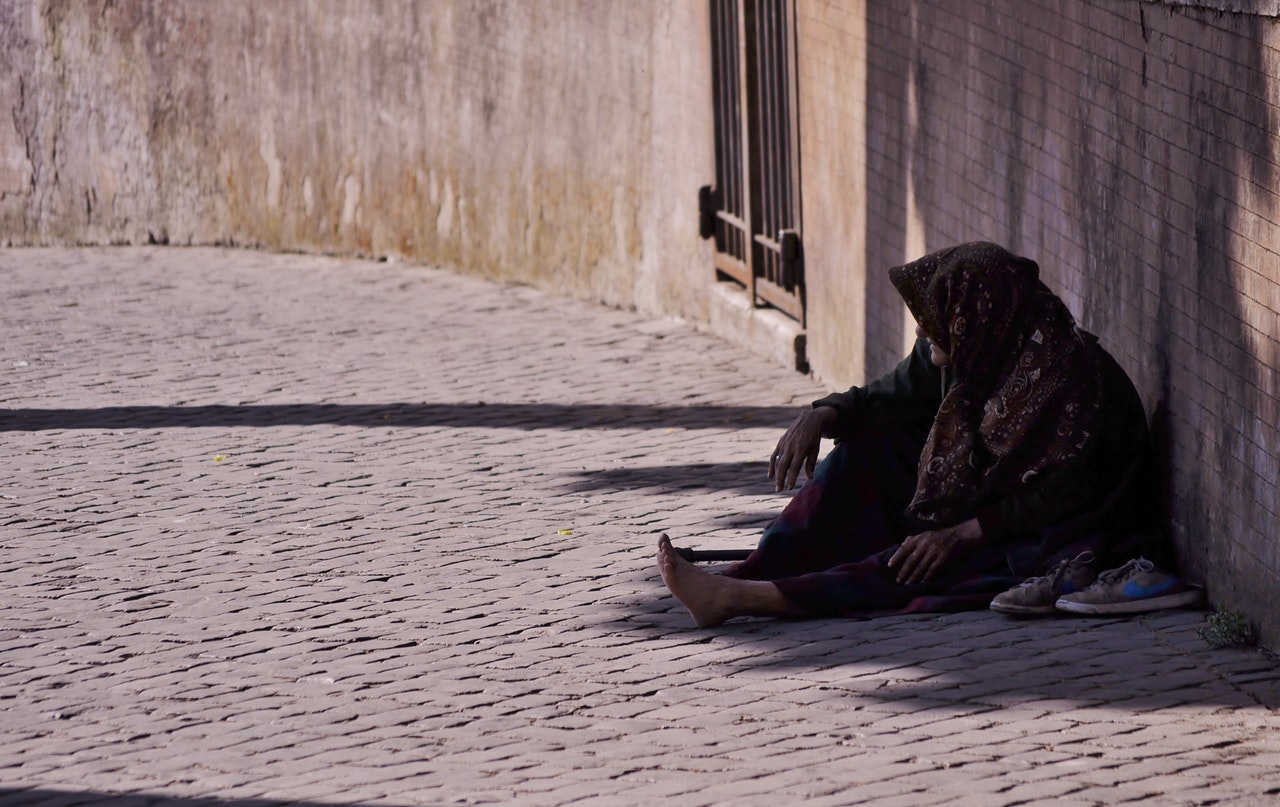Why does Jesus bless the poor in spirit?
Blessed are the poor in spirit, for theirs is the kingdom of heaven. –Matthew 5:3
Blessed are you who are poor, for yours is the kingdom of God. –Luke 6:20
Jesus begins the Sermon on the Mount with eight remarkable beatitudes. The first is the most important because it introduces the other beatitudes and puts them in their proper context. And the first beatitude is distinctive in another way: while the other beatitudes speak of being filled with something, the first one is about becoming empty. God cannot fill us with his Spirit if we are already filled with something else.
The poor in spirit are not filled with things like pride and self-confidence because they have become aware of their true condition in the world: they are weak, wrong-minded, and unable to change their destiny. They further realize the hopelessness of putting their faith in others who are in the same helpless condition.
The poor in spirit are the opposite of the arrogant and self-confident people Jesus sarcastically describes as “rich” in Luke 6:24. But being poor in spirit is not about the amount of money we have (or don’t have) in our bank account. It’s about our attitude toward ourselves and God.
Those who are “poor in spirit” are identified in the Old Testament as the anawim. They were materially poor, but their poverty of spirit was the result of deep repentance–they were a people who realized they were spiritually bankrupt and totally dependent on God. Their hope was in the coming Messiah.
And God noticed. He confided to Isaiah, “I dwell in the high and holy place, but also with him who is contrite and lowly in spirit, to revive the spirit of the lowly and to revive the heart of the contrite” (57:15). And at the end of Isaiah’s prophecy, the Lord said again, “This is the one to whom I will look: he who is humble and contrite in spirit and trembles at my word” (66:2).
In the book of Judges we read about Gideon, a man so poor in spirit that he would only do what God commanded if he knew God would be beside him. In the New Testament, Mary and Joseph are good examples of the anawim, as are Simeon and Anna (Luke 2:25–38).
When Jesus says the poor in spirit are blessed with “the kingdom of heaven,” he is not offering pie-in-the-sky-by-and-by. He does not say, “blessed are the poor because one day their’s will be the kingdom”–he says, “theirs is the kingdom.” Jesus uses the present tense of the verb because while the kingdom has not come in its fullness, it has come, and those who choose to live under God’s rule can enjoy many of the benefits of heavenly citizenship even while living in the world. Things like peace of mind, joy, contentment, and a worry-free life are available to anyone and everyone who follows Jesus.
So how do we get the poverty of spirit that will usher us into God’s kingdom? Many answers have been offered to that question over the centuries. In the Middle Ages it was popular to think Jesus was advocating material poverty, and many followed the example of men like Francis of Assisi and renounced their riches to become mendicant monks. But life experience teaches us the hard truth that it isn’t our wealth that keeps us out of God’s kingdom. It is our attitude that determines our fate. A person of great wealth can enter the kingdom if she recognizes she is simply a steward of Someone else’s riches, and a person in extreme poverty can be denied entrance to the kingdom if he covets the wealth of others. The key to the kingdom is locked up in the little word “trust.” Those who trust in God and use money as a tool will be blessed. Those who trust in money and attempt to use God as a tool are doomed.
But we still haven’t answered the “how do I become poor in spirit?” question. And I’m pretty sure you won’t like the Bible’s answer, but here it is: we become poor in spirit by living through painful circumstances and being helpless to change them. It could be a diagnosis from a doctor or a financial reversal or the death of a loved one or a combination of tragedies. But whatever it is, it will be significant enough to rearrange our thinking and cause us to realize that we are not as together and in control as we thought we were.
In an ancient poem, Saint John of the Cross called it “the dark night of the soul.” That doesn’t sound very inviting, but our path to heaven will take us through experiences designed to empty us of foolish notions like pride and self-sufficiency. We, like the prodigal son in Jesus’s parable, must “come to our senses.”
Next: Blessed are those who mourn

